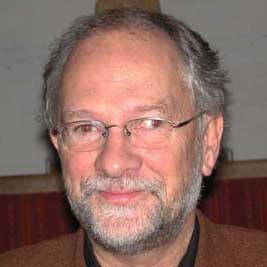Institute seminar March 10th 10.30 Gustav Gaudernack

The institute seminar on Wednesday March 17th is given by Gustav Gaudernack from the Department of Immunology.
Title of his talk:
Cancer immunotherapy: From bench to bedside and from mutant ras to cancer stem cells
The seminar takes place in the Auditorium (New Research Building Montebello) and starts at 10:30.
Abstract
A cancer cell may differ from its normal counterpart by as much as 20-30.000 somatic mutations. In general, all those genetic changes in a cancer cell that become manifest at a protein level, either in the form of an altered gene product or as an increased amount of a gene product, may be targets for the immune system.
Relatively few of the mutations affect components that are expressed on the surface of the cancer cell. This limits the number of targets available for antibody based therapy. On the other hand, the T cell part of the immune system is capable of recognizing peptide fragments derived from all types of intracellular proteins, provided they have binding motifs fitting with their HLA molecules. This has opened up for the development of immunotherapy targeting the whole spectrum of genetic chances associated with malignancy.
Starting with individualized cancer vaccines targeting cancer cells harbouring K-RAS mutations, we have developed a number of peptide vaccines targeting key molecules involved in carcinogenesis. The most advanced vaccine, targeting the hTERT component of telomerase is now in a large Phase III clinical trial in the UK. In parallel we have developed a “shotgun” approach based on electroporating the mRNA fraction isolated from tumours into antigen presenting cells derived from the patients. These highly immunogenic “surrogate tumour cells” have then been used to vaccinate patients in a series of clinical trials.
Among the many patients treated with these vaccines, a number have had an extraordinary clinical course, involving disease stabilization over many years, partial and even complete remission of the disease. These patients offer a unique opportunity to study in detail the immune response against the vaccine. Based on such investigations, we are now developing a second generation of cancer vaccines and furthermore novel types of gene therapy based on “clinically validated” T cell receptors cloned from long term survivors. Examples and data from these projects will be presented, and an introduction to future immunotherapy of cancer at Radiumhospitalet will be given.
Links:
The Immunotherapy group, headed by Gustav Gaudernack
